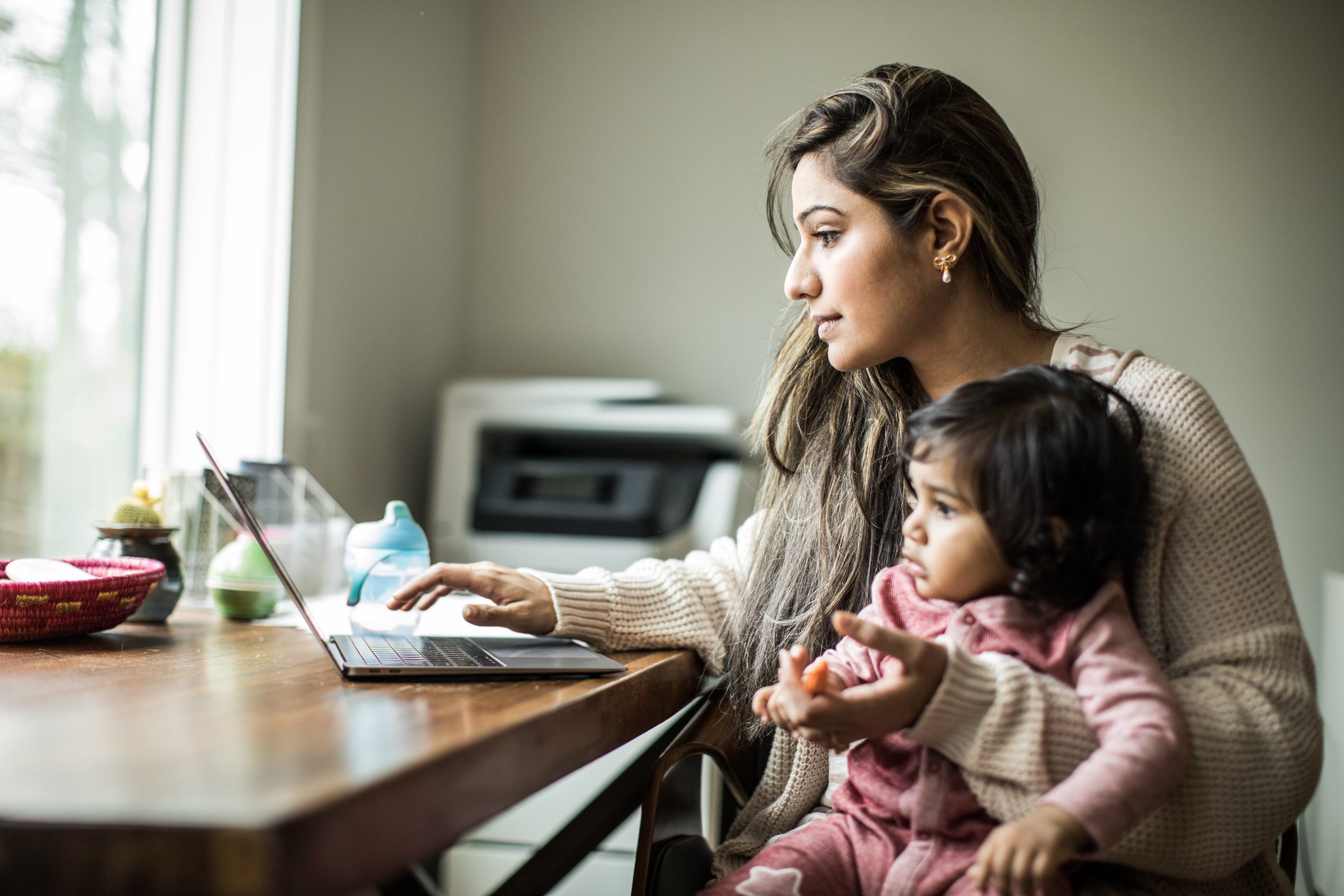
More than 20 years ago, I was the first woman to take maternity leave at Google.
But I almost didn’t come back to work after my first baby was born. It felt like too much to spend the workday away from my newborn while juggling the demands of my job and parenthood. If I had made a different decision in that moment, it would have changed the course of my career.
That’s one of the reasons why I’ve long advocated for better maternity leave policies. In 2014, I wrote about why offering this benefit is good for business, just as I took maternity leave for the fifth time.
Today, the way we work is changing. The pandemic showed us that we don’t have to sit in a cubicle to be productive in our jobs. People need flexibility to do their best work, and this is especially true for new parents.
That’s why I’m glad that starting today Googlers will have an additional three months to work from home after their family leave ends. This new policy adds to our recently announced increase to 24 weeks of paid maternity leave.
I remember what it’s like to work from an office while wondering what’s happening with your baby at home. It means you can’t check in to make sure they’re sleeping and eating well and happy. And if you’re breastfeeding, it means remembering pumping supplies, cleaning the equipment, storing milk, and rushing home to make sure to arrive for your baby’s feeding.
But it doesn’t have to be this way. New parents with jobs that can be done remotely should be able to work from home while meeting the day-to-day demands of new parenthood.
The pandemic has been hard on everyone, and it’s taken a particular toll on women. But research also demonstrates that the pandemic has brought opportunities for some parents of young children. A recent report published by Brookings showed that the number of women with college degrees in the workforce who were parenting infants and toddlers actually increased during the pandemic compared to 2018.
Working from home has opened up possibilities we didn’t think were possible before. At the start of the pandemic, it was hard to imagine running YouTube with most employees working from home. But we did.
We weren’t the only company to keep up with business demands while out of the office. A Pew Research Center report released in February showed that 90 percent of people surveyed who shifted to working remotely during the pandemic said it was the same or easier to get work done while working from home.
While there are many benefits to working together in person to learn from each other, build relationships, and brainstorm, there are also benefits to working from home, like cutting down our commutes, finding more time to exercise, and being with family. At YouTube, we’ve adopted a hybrid schedule, and we’ve offered our employees the option to apply to work remotely on a permanent basis.
Flexibility is critical not just for some employees, but for our society as a whole. From conferences to business trips, companies should rethink what needs to be done in person so more people from diverse backgrounds can participate virtually.
Of course, not everyone has the option to work from home. People who work at hospitals, restaurants, pharmacies, or in manufacturing can’t attend meetings virtually or work from a home office. And there’s a persistent problem that people with higher incomes benefit from leave policies while those making lower incomes do not. Only 23 percent of workers in the U.S. had access to paid family leave last year, according to BLS data.
America is the only OECD country that does not provide mothers with some amount of paid leave.
We still have a long way to go to make leave more accessible for everyone. That’s why this issue continues to be a top priority.
The pandemic has shown us different ways of working. We should take these lessons about flexibility into account as we move forward and give new parents the option to spend more time working from home.
More Must-Reads from TIME
- Cybersecurity Experts Are Sounding the Alarm on DOGE
- Meet the 2025 Women of the Year
- The Harsh Truth About Disability Inclusion
- Why Do More Young Adults Have Cancer?
- Colman Domingo Leads With Radical Love
- How to Get Better at Doing Things Alone
- Michelle Zauner Stares Down the Darkness
Contact us at letters@time.com